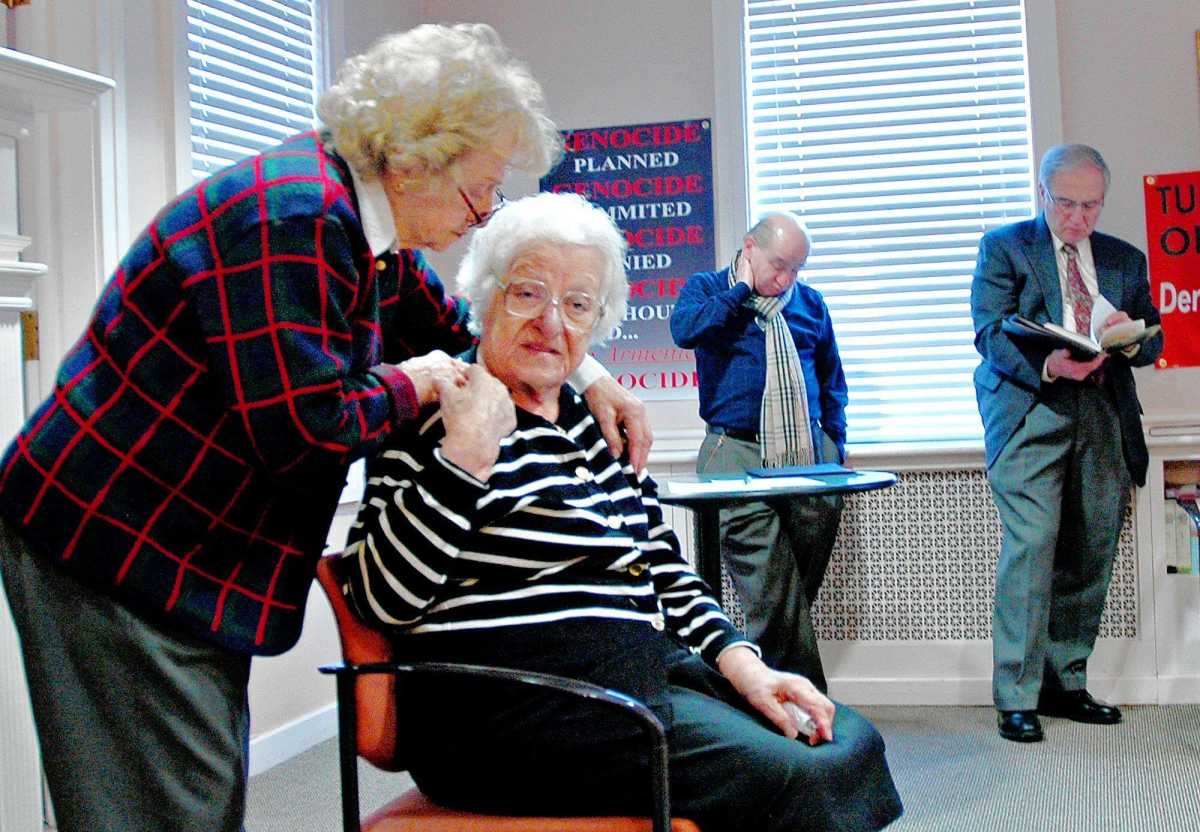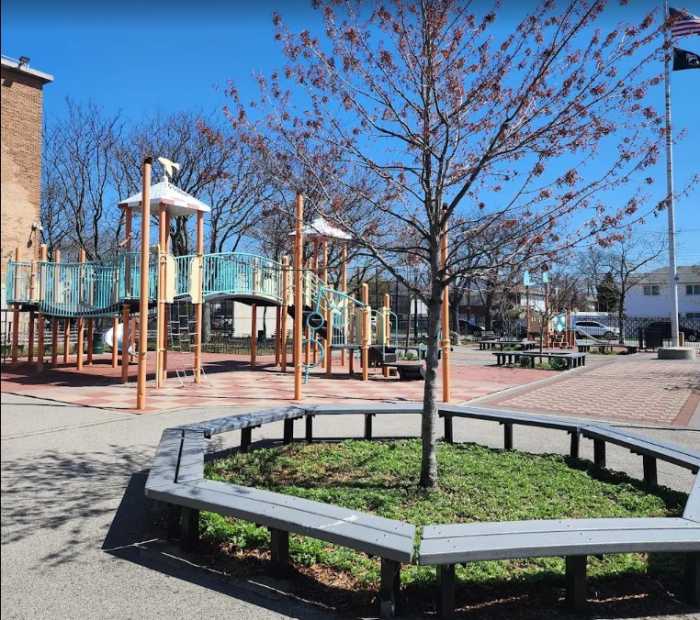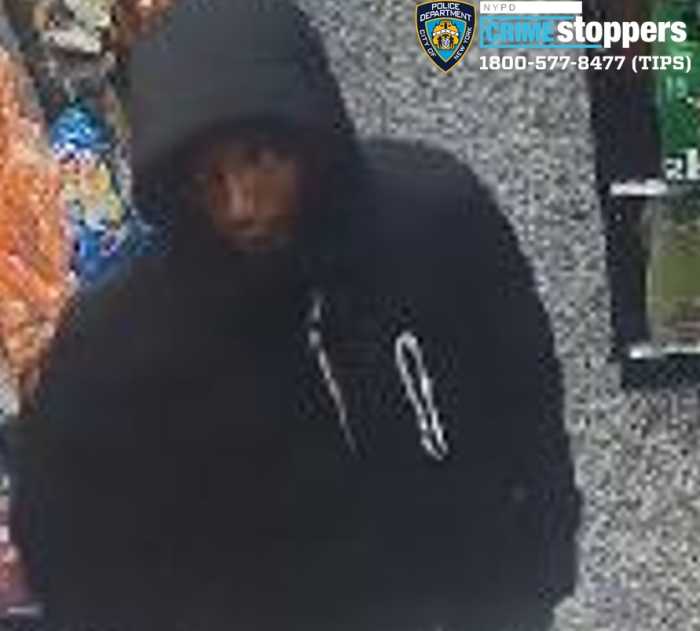By Howard Koplowitz
Perouz Kalousdian was 6 years old when she and her mother were separated from their male relatives, who were tied up and thrown over the Euphrates River during the Armenian genocide in Turkey.
Kalousdian, now 101, and two other Armenians in their late 90s recalled the horrors they witnessed during the genocide from 1915-23, when 1.5 million Armenians out of 2 million in Turkey were killed by the Young Turk dictatorship.
“All of a sudden, army pulled in and they came in. They took all the men first,” Kalousdian recalled Sunday at the Armenian Home for the Aged in Flushing. “They take and they shoot them.”
She said some men were tied up in her hometown of Palu and tossed into the Euphrates River.
The genocide, carried out by Islamic Turks against Armenian Christians, started because the Ottoman Empire feared Christian powers like England and France would cut into their empire to defend the Armenians.
Residents of the Armenian Home are expected to attend a May 1 rally in Times Square to commemorate the 96th anniversary of the genocide.
Kalousdian said the massacre left women and children to fight for survival.
“We suffered and we suffered and we suffered,” she said. “Sometimes my friends say, ‘Don’t talk about it.’ I can’t help but to talk about it.”
Kalousdian and her mother stayed in the village of Kharput, now known as Elazig, where they remained until the genocide quieted down.
Her mother put her in an American orphanage in Turkey around 1916, and her mother worked as a servant in Turkish homes.
At 14 years old, Kalousdian came to America, or as she put it, “the promised land.”
She learned how to sew while she was in the orphanage and became a seamstress in New York while her father, who was already in America, worked in a grocery store on 52nd Street.
Charlotte Kechejian, 98, recalled how she had trekked through the desert for months without her family during the genocide.
“I was hungry and not well-treated,” she said. “Very annoyed because I was with strange people. I was 10 years old, separated from the family, but my mother’s advice was, ‘It’s a temporary thing, so just grin and bear it.’”
Kechejian said her father was taken away by the Turks, but they were reunited six months later.
She said she never found out what happened to her mother during their separation, but they also reunited “in a strange place” that she does not remember.
Kechejian recalled how bodies were taken away as she trudged through the desert and feared she would die there.
“I was so afraid I may go, too,” she said.
Arsalos Dadir, 97, recounted how she came from a wealthy Armenian family but starved during the genocide.
“They took us out of our home and they put is into a smaller place. We suffered,” she said.
Dadir said her father was killed during the genocide.
“They took all the men away and they shot them,” she said through an interpreter. “They tied their hands and in a line took them to the garden and shot them.”
Dadir said helpful Turkish neighbors hid the rest of her family in a chicken coop.
“We walked and we walked and on the roadside we saw dead bodies,” she said.
Dadir later settled in Constantinople, now Istanbul, and got married there, but her husband and three siblings died there of illness.
She eventually made it to America with her two children, who were already in the country, helping her out.
Dadir said she ran a jewelry business with her sons in New York and at one time all the jewelry was exclusive to Saks Fifth Avenue.
Reach reporter Howard Koplowitz by e-mail at hkoplowitz@cnglocal.com or by phone at 718-260-4573.





































